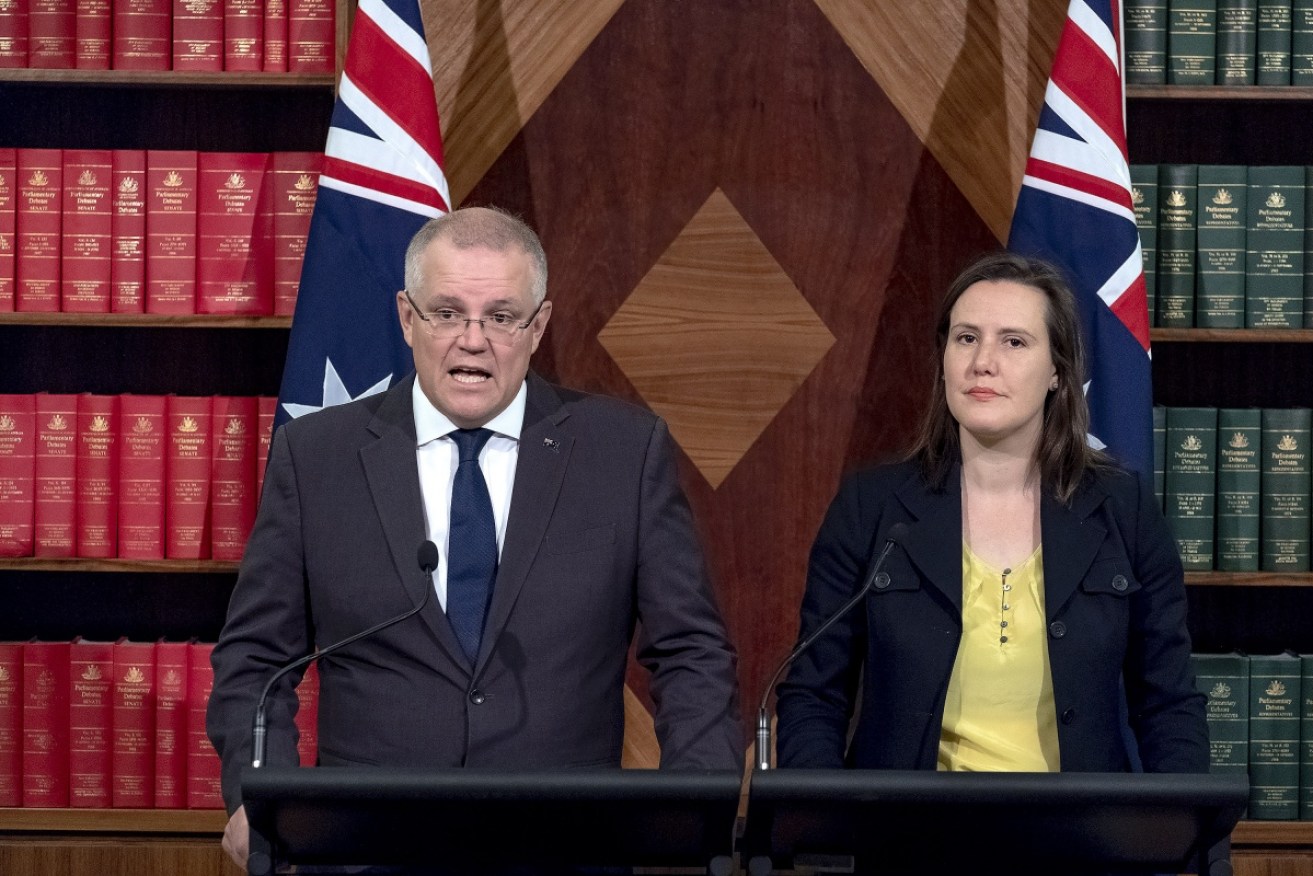Productivity Commission recommends super revamp


Scott Morrison and Kelly O'Dwyer, the ministers who must decide what to take and what to leave in the report. Photo: AAP
The Turnbull government has been handed a radical blueprint to overhaul Australia’s compulsory superannuation system, transforming it from a workplace-oriented system to one based exclusively on the individual.
The 549-page Productivity Commission report, released on Tuesday, recommended employers be removed from the superannuation selection process altogether.
Instead, the onus for selecting a super fund for life would fall on the individual at the beginning of his or her working life – a radical shift from the current system.
The report also found that the not-for-profit sector – which includes industry and public sector super funds – was dramatically outperforming the for-profit ‘retail fund’ sector, which is dominated by big banks and investment companies like AMP.
However, it was the for-profit sector that greeted the Productivity Commission’s proposals most enthusiastically, while the not-for-profit sector criticised them as “baffling” and too “experimental”.
Releasing the report on Tuesday, deputy chair of the Productivity Commission Karen Chester said the super system’s architecture was “‘outdated”.
“The system suffers from two structural flaws — unintended multiple accounts and entrenched underperformance,” she said.
“With default funds being tied to the employer and not the employee, many members end up with another account every time they change job.”

Source: Productivity Commission
The key proposals
Under current rules, when you start a new job you are given the option of nominating a super fund. If you fail to do so – as a huge number employees do – your employer will put you into a ‘default fund’ of its own choosing.
This would change under the new proposal. Upon entering the workforce for the first time, a young worker would be told to choose from a list of 10 high-performing ‘best-in-show’ superannuation funds, selected by an independent panel of experts.
For workers that fail to make a choice, they would be automatically signed up to one of these 10 funds using a process called ‘sequential allocation’. The employer would have no input.
Once the worker had joined a fund, that fund would automatically follow them around whenever they switch jobs. This, the Productivity Commission said, would solve the problem of members with multiple super accounts paying multiple administration fees and insurance premiums.
The Productivity Commission said it would also solve the problem of workers unwittingly joining poor performing super funds – since only the best performing funds would be included on the ‘best-in-show’ list of 10.
Radical shift
If implemented the proposal would radically change the way the super system functions.
Currently employers must select a ‘default fund’ to put their employees into if they don’t choose their own fund. Employers pick this fund according to three methods.
First, the fund must have ‘MySuper’ accreditation to be used as a default fund.
Second, if the industry is covered by an industrial award determined by the Fair Work Commission – as most are – then the employer may only select from a handful of super funds listed in that award.
Finally, businesses bound by an enterprise bargaining agreement (EBA) may be required to put their employees’ super contributions into a specific super fund, mutually agreed upon by the employer and the union.
Under the Productivity Commission’s proposal, MySuper accreditation would continue to be a requirement for funds looking to be included on the ‘best-in-show’ list of 10.
However, the second of the two methods of selecting a default fund would be scrapped under the proposals. Superannuation funds would no longer be listed in industrial awards, and could no longer be included in EBAs.
David Whiteley, chief executive of Industry Super Australia, the peak body for industry funds, said the removal of super from the Fair Work Commission was unnecessary.
“We think there is a disconnect between the empirical findings and the recommendations. The empirical findings show the default system outperforms the choice system,” he said.
“The empirical evidence shows the industry funds and other not-for-profit funds are the best funds in the system. The empirical findings show the system works. We obviously support a merits-based selection process. But it should be done through the Fair Work Commission.”
He described the proposal to have young people select their own super fund as “quite experimental”.
“They suggest teenagers at the start of their careers should choose a super fund for what could be the rest of their life. They are forcing teenagers to make decisions about their retirement. It’s a bewildering, baffling proposal.”
He said teenagers were the cohort of people least informed about retirement.
The Association of Superannuation Funds of Australia, which represents the entire industry, was also sceptical.
“The proposal to allocate default superannuation to 10 so called ‘best-in-show’ funds would dramatically change the retirement funding landscape, and raises questions with respect to innovation, competitive intensity and diversity,” ASFA chief executive Dr Martin Fahy said.
Dr Fahy was particularly critical of the Productivity Commission’s criticism of small super funds.
“[M]any smaller funds are able to provide niche offerings to their members, including tailored insurance and investment options, and the importance of this to members should not be underestimated,” he said.
But the Financial Services Council, which represents the for-profit sector, welcomed the proposals.
Chief executive Sally Loan said that “in the main” the report showed the super system was “working well for most Australians”.
“However it has found that a key driver of poor outcomes is having default funds tied to employers and workplace relations through enterprise agreements and modern awards. They note that this has worked in favour of the funds, not consumers,” she said.
“Giving consumers just one default fund that they can carry from job to job will also address the chronic and massive problem of multiple accounts, which still afflicts our system to the great detriment of consumers.”
The New Daily is owned by Industry Super Holdings, which is owned by a number of industry superannuation funds.







